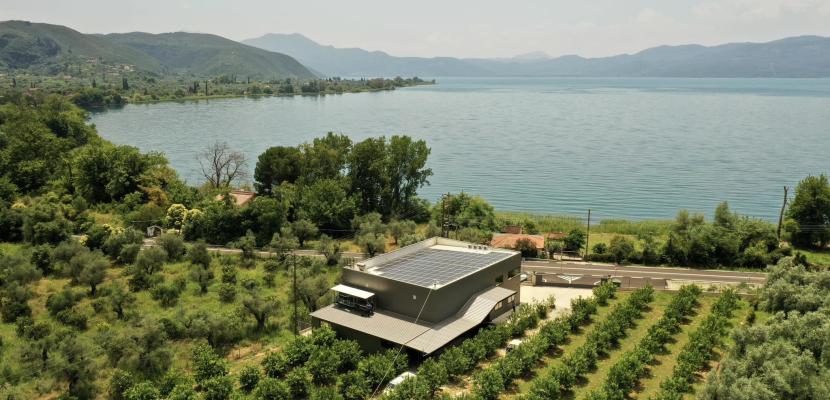
Lemons production and packaging unit in Thermo, Aitoloakarnania, Western Greece

About this good practice
Maintaining and upgrading local farming activity to support local economies presents a challenge for rural areas facing risks of climate change and declining population. The following initiative, which was reviewed in the context of the project Down to Earth, addresses the lack of a modern lemon packaging facility in the Thermo area that meets the quality standards required to bring local produce to the market, an essential element for rural livelihoods and land maintenance. The project capitalizes on the local farms and high-quality lemons, enhanced by the area's favorable microclimate, by Greece's largest freshwater lake, Trichonida.
Implementation & Objectives: The unit processes up to 60 tons of lemons annually, implementing modern technology and quality assurance systems (ISO 9000 and ISO 22000). It incorporates ERP systems, product coding, and traceability software, ensuring product safety and quality. Τhe cooling facility is powered by PV panels reducing the energy footprint and contributing to climate objectives.
Contribution to Thematic Objectives: The project supports local business initiatives, enhances the income of local residents, and promotes environmentally responsible practices in agriculture.
Public support: The project received public support from the EAFRD co-funded Rural Development Program 2014 - 2020, under Measure 19.2 of CLLD-LEADER, managed by Trichonida SA, with the objective to increase the competitiveness of the Agrifood value chain.
Expert opinion
Resources needed
Financial resources included building construction, equipment procurement, and software systems installation; human resources for operation and management.
The total project budget was: €377,710.45, of which Community participation of €169,969.70 (EAFRD) and National contribution of €18,885.52.
Evidence of success
Τhe Lemons Processing project by Stigkas Emporiki ΟΕ improves the potential of the local agrifood value chain filling a regional gap and handling 60 tons annually. It introduces advanced technologies like ISO 9000, ISO 22000, ERP, and traceability software, elevating safety and quality to industry-leading standards. The facility boosts the local economy, contributes to land use management, enhancing agricultural value and setting quality standards while meeting consumer expectations.
Potential for learning or transfer
The project exemplifies innovative agricultural processing with its scalable, adaptable model. It features a state-of-the-art facility, advanced technology integration, quality assurance, and environmental sustainability, adaptable to diverse regional needs while respecting local practices. Use of modern technology, highlights its potential to elevate agricultural standards. The strategy to enhance local production through value upgrade and market links underpins a viable economic model, supporting local producers and creating sustainable markets. Furthermore, its emphasis on environmental sustainability aligns with global trends, making it a suitable model for regions seeking to improve agricultural practices sustainably. This comprehensive approach, blending technological innovation with economic and environmental sustainability, positions the project as a transferable example for enhancing agricultural processing capabilities, while meeting demand for quality and sustainability.
Further information
Images

Documents
D2E - Good practices template Thermo Lemons Processing.docx
20240214_102515.jpg
Website
Good practice owner
You can contact the good practice owner below for more detailed information.
